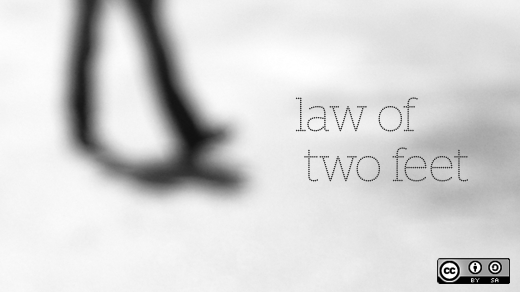Of all the concepts we associate with open organizations today, meritocracy might be the most complicated, complex, and controversial.
I remember vividly a conversation that illustrated this for me. Speaking with someone at a banking conference, I suggested that, in organizations wishing to foster cultures of innovation, the best ideas should always win—and that people with the longest history of concrete, successful contributions to an organization should be the ones to decide which ideas are indeed "best."
That didn't suit my discussion partner.
"No way!" he said. "That's wrong! Why do people who have been in the organization the longest—whose thinking might be most stale and outdated—get the authority to judge which ideas should be worth pursuing?"
It was a fair point. Creating an innovative culture in any organization means always having to balance the novelty of fresh ideas with the valuable wisdom the organization's leaders have accrued over time. That conversation really served to remind me that meritocracy isn't a straightforward solution to any and every problem (something we can just "drop in" to an organizational context and expect immediate, positive results). It's always a work in progress, and keeping an organization's meritocracy in check—routinely scrutinizing it to make sure it's functioning to produce the best results—is crucial.
But doing that is much more difficult when meritocracy remains something nebulous and abstract—a set of principles with little focus on implementation. At Red Hat, we recognize this, and I want to share what we've learned about meritocracy, as well as the ways we're putting it into practice every day.
Not tenure
Meritocracy means many things to many people, but I tend to describe it as a concept that unites three basic notions (which I detail in Chapter 4 of The Open Organization):
The best ideas should come from anywhere. Arbitrary lines on a chart and artificial silos shouldn't dictate how innovative ideas and solutions might (or might not) travel through an organization. Good ideas, no matter where they originate, should always find generous and interested ears.
The best ideas should always win. Debate over potential solutions, paths, or decisions should always be about ideas. This means making concerns about the quality of the ideas we're developing the utmost priority, and working hard to ensure a diversity of opinions and perspectives guides us while we develop them.
Contribution matters more than title. As people in open source communities often say: "Code talks." What people actually do (what they contribute, what they bring to the table) matters more than what they say they can (or should) do, and it matters far more than whatever title they hold. While it's true that people with long histories of concrete, effective solutions tend to garner more power and authority in meritocracies, this principle always underscores the fact that power is something earned, and is always shifting based on what people continually produce for the good of the group. (As one Red Hatter, Tom Callaway, once put it to me: "Meritocracy isn't tenure." Tom visited my office a few months ago dressed as Linux mascot Tux the penguin, so he's clearly someone who has my attention.)
Meritocracy in practice
At Red Hat, we've worked hard to cultivate meritocratic thinking as part of our organizational culture. But, as Chief People Officer DeLisa Alexander said recently, we've very deliberately defined it as a leadership capability. That means we don't just pay the principles lip service and leave them be. Quite the opposite: We recognize that a meritocracy is only useful if the people composing it are actively dedicated to making it work. So we're always asking ourselves whether our working definitions of meritocracy are effective and productive—always actively refining the concepts as we put them to work—then concretizing the concepts into specific practices and behaviors we expect leaders at Red Hat to exhibit.
One result of our years of meritocratic experimentation is something we just made available to other organizations working to create the most innovative cultures: the Open Decision Framework. At its heart, the framework represents our ongoing effort to reflect on meritocratic principles, translate them into concrete practices, and analyze the outcomes we produce as a result. It outlines a multi-step process for collecting, researching, designing, testing, and launching decisions and initiatives in a transparent, collaborative, and customer-centric way. And it provides organizational leaders—whoever or wherever they are—a tool for gauging whether a meritocratic structure is really working to produce the best ideas.
In short, it's a step-by-step guide to being an effective open leader. And we've made it available for remixing and reuse by anyone. We're excited to see how others adapt, modify, and translate the framework to their own organizational environments and cultures.
I'm sure we'll learn even more about our own meritocracy when they do.






3 Comments